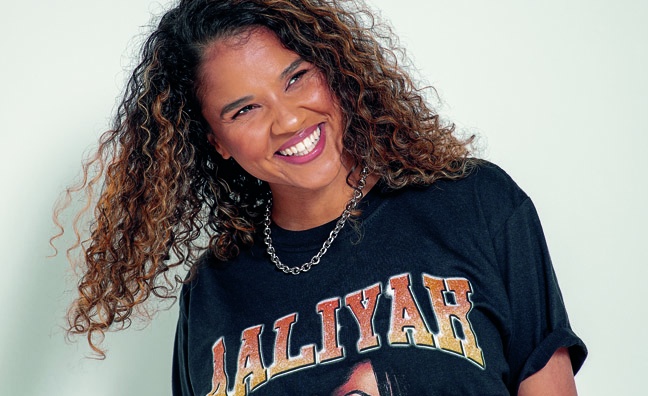As artist & label partnerships lead for hip-hop, rap, grime, drill, R&B, Afrobeat, reggae & dancehall at Spotify, Safiya Lambie-Knight is one of the country’s most influential figures in black music. Here, she talks us through her experiences in the UK biz…
Has Black Out Tuesday changed the biz’s mood?
“Yes, definitely. I’ve worked in the music industry for 11 years and this is probably the first time where people have come together to have conversations on a number of difficult things. For the first time, diversity is at the top of everybody’s agenda. Obviously, it’s always mattered to me, but to see it happening at scale across all parts of the music industry definitely feels like things are moving in the right direction.”
What impact does the under-representation of black women in the industry have?
“As a black woman in the music industry, there are fewer people to look up to. There are no black female presidents in the UK music industry, for example. For a long time, I was the only black woman in UK streaming. We’re definitely under-represented. That’s one of the biggest changes that will need to come; [companies need to take] a real look at how they can grow members of their team to feel like they can aspire to do those roles predominantly held by white men. Positive role models in senior leadership positions for black women are a really important thing.”
What can be done to amplify black women in the industry?
“At Spotify, we always think about how to represent and consider gender when we’re making decisions as a music team, such as how we can build out our playlist ecosystem to support more female artists in spaces where they maybe haven’t been supported in the past. We recently relaunched our Who We Be podcasts with two new hosts: a man and a woman. We made that decision deliberately, because having a female voice and insight in those conversations where, musically, it’s going to be predominately male, is really important.”
Being a black woman comes with challenges
Safiya Lambie-Knight
What’s been your biggest challenge?
“Being a black woman comes with challenges. I’ve experienced direct and indirect racism. I’ve had to make complaints about specific things that have happened to me. I’ve had to call out microaggressions and things people have said in certain situations. Certain people will say things to you in a certain way because of who you are. I’m also a black woman in real life, not just in the music industry – this isn’t something I can switch off. I will always call out something if I feel it’s wrong. But this current climate is highlighting that there’s a long, long way to go still.”
And your greatest achievement?
“When I joined Vevo, I realised there was a big gap in the catalogue for UK rap and hip-hop. I made it my personal mission to understand why people didn’t want to launch videos with us, and what I could do to change that. One of my biggest achievements is figuring that out; listening to artists, understanding what they needed and educating them on what Vevo was. By the end of my time there, we’d got a number of videos launched on platform and a lot of artists involved in Dscvr and Lift, which evolved to be more accommodating for black artists. And the most important thing was making sure everything was sustainable, so the changes would exist if I left. ”
What does the industry need to do to improve its understanding of black music culture?
“One of the main things that has come out of this movement is the fact people need anti-racism training. In an industry that is diverse in every respect in its output, it’s vital that every single person that works in it understands the sentiment of anti-racism. By doing that, you hopefully change your approach to certain situations. While people might make well-meaning decisions they think are right, the most important thing if you have a high percentage of black artists on your label or management roster is, you need an understanding of their culture. And the only way to have that is by letting other people into the room and onto your team that are from diverse backgrounds.”
Where do you stand on the word ‘urban’?
“Moving forward, [Spotify] won’t be using the word ‘urban’ in the UK anymore. I look after a breadth of what were previously ‘urban’ genres and it will allow us to have broader conversations around creativity and artists. Honestly, there are bigger problems that we need to resolve, but we will talk about music in genres going forward.”
* For our full Girls I Rate-curated celebration of black female excellence in the music industry, including Carla Marie Williams' open letter to the industry, see the new edition of Music Week, available now. To make sure you can access Music Week wherever you are, sign up to our digital issue by clicking here.









